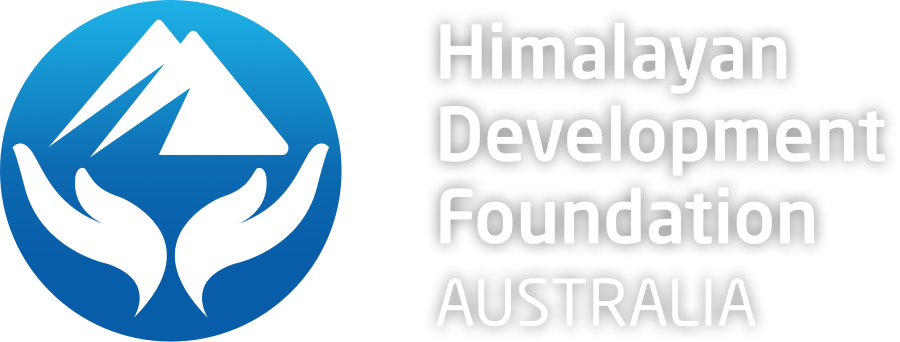The Himalayan Development Foundation Australia aims to secure a brighter future for children in remote Himalayan communities. By 2030, we are working to ensure access to education for all children in the remote Kanchenjunga and Indrawati communities of Nepal.
We believe giving children an education is the best way to break the illiteracy-poverty cycle and counter the risk of child trafficking. Our work also extends to health and livelihood improvement activities in order to give parents the capacity to send their children to school.
We are a small and passionate team, dedicated to working in very remote Himalayan areas that large-scale organisations overlook.
Our journey
HDFA commenced working in Nepal in early 2014, co-founded by prominent South Australian mountaineer Duncan Chessell and Andrew Stace, an educator with international development experience and a passion for Nepal.
In 2013 Duncan first visited Ghunsa, the home village of the Sherpa mountain guides who had helped him on several missions to Kanchenjunga (the world’s third highest peak). The journey took a one-hour flight from Kathmandu, followed by an 18-hour drive, and then three days of serious trekking.
The extreme remoteness and poor living conditions were striking. Ghunsa was well off the tourist trail, overlooked by charities and barely receiving any government support. This is what motivated HDFA to help the people of Ghunsa and other very remote areas of Nepal give their children a better future.
HDFA has achieved significant success in a short time. Driven by a capable and passionate volunteer board, we have successfully increased school attendance to year 8 in Ghunsa from 25% up to 100% by:
- Strengthening school governance
- Rebuilding the dilapidated school and hostel
- Addressing underlying inhibiting factors including poor healthcare and intermittent power.
We also brought health services to Ghunsa for the first time, an initiative that from 2020 will be fully funded by the Nepali government thanks to successful lobbying by our in-country team.
In 2016 we started working in Indrawati, north of Kathmandu, a heavily earthquake-damaged region where human trafficking is rife. In 2017 we greatly enhanced health services to ~9,500 people through improved clinical outreach, family planning and awareness-raising. In 2018 we implemented an agricultural improvement program, equipping 200 of the poorest families with a year-round source of nutrition and income. From this strong base we are now moving into education work in Indrawati.
Our beliefs
We believe that passionate people can change the world for the better.
We are volunteer driven, supported by a few professionals.
We value our supporters and volunteers as our greatest asset.
We embrace holistic consultative community development:
- We provide a hand up, not a handout, and avoid creating dependency
- We aim to become redundant within a project, increasingly replaced by empowered community leaders and community-sourced funding
- “Do no harm”: We monitor activities carefully for unintended negative consequences
- We are respectful: We always consider standing in the other person’s shoes and use respectful terminology
- We use Nepalese staff where possible

